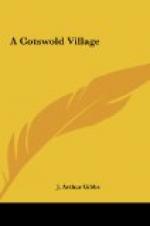A good rider sitting at his ease on horseback,
“As if an angel
dropped down from the clouds
To turn and wind
a fiery Pegasus,
And witch the
world with noble horsemanship,”
resembles a skilful musician seated at a piano or an organ. There is the same kind of communication between the man and the instrument, whereby the stricken chords respond to the lightest touch of the master, who guides as with a silken thread the keys that set the trembling strings in motion. For the rider’s keys are curb and snaffle, and his hands, by means of the bridle, control the sensitive bars of his horse’s mouth—the most harmonious, delicate organ yet discovered on earth, but too often, alas! thumped and banged on to such an awful extent by unsympathetic, heavy hands, as to become considerably out of tune, whereby discord occasionally reigns supreme instead of sweet melodious harmony.
Goodness gracious! what’s up? Our horse, which has never refused before, has stopped dead at a wall. We stand up in the stirrups and peep over, and there below us is a narrow but deep quarry, a veritable death trap for the unwary sportsman. This is indeed a merciful escape; and how can we be too thankful that a horse—wise, sagacious animal that he is—has been endowed with an extraordinary instinct whereby he can smell danger, even though he cannot see it. Writing of this—one of the numerous escapes a merciful dispensation of Providence has granted us in the hunting field—we are reminded that no less than five good men and true have been killed suddenly with the V.W.H. hounds during the last eighteen years. The list commences with George Whyte Melville, prince of hunting men, who broke his neck in a ploughed field in 1878. And it is a very remarkable fact that Mr. Noel Smith was killed in 1896, on precisely the same day—viz., the first Thursday of December—as that on which Whyte Melville lost his life eighteen years before.
But soon after crossing a road, hounds suddenly check. After casting themselves beautifully forward right-and left-handed until they have completed a half circle, they throw up their heads and look round for the huntsman. By a sort of instinct, the result of previous observation, the foremost riders anticipated that check, and did not follow hounds over the road, though one or two later arrivals press forward rather too eagerly. The huntsman, who is not far off, seeing at a glance that there is no other cause for checking, as the hounds are in the middle of a large grass field, immediately decides that the fox has turned sharp down wind (he has been running up wind all the way), and casts his hounds left-handed and back towards the lane without much delay.
“And now,” to quote from Mr. Madden’s “Diary of Master William Silence,” “may be seen the advantage of a good character honestly won.” Crusty is busy “feathering” down the road, and as he is an absolutely reliable hound, the rest of the pack are not long in coming back to him, and soon, cheered by their huntsman, they are in full cry again.




